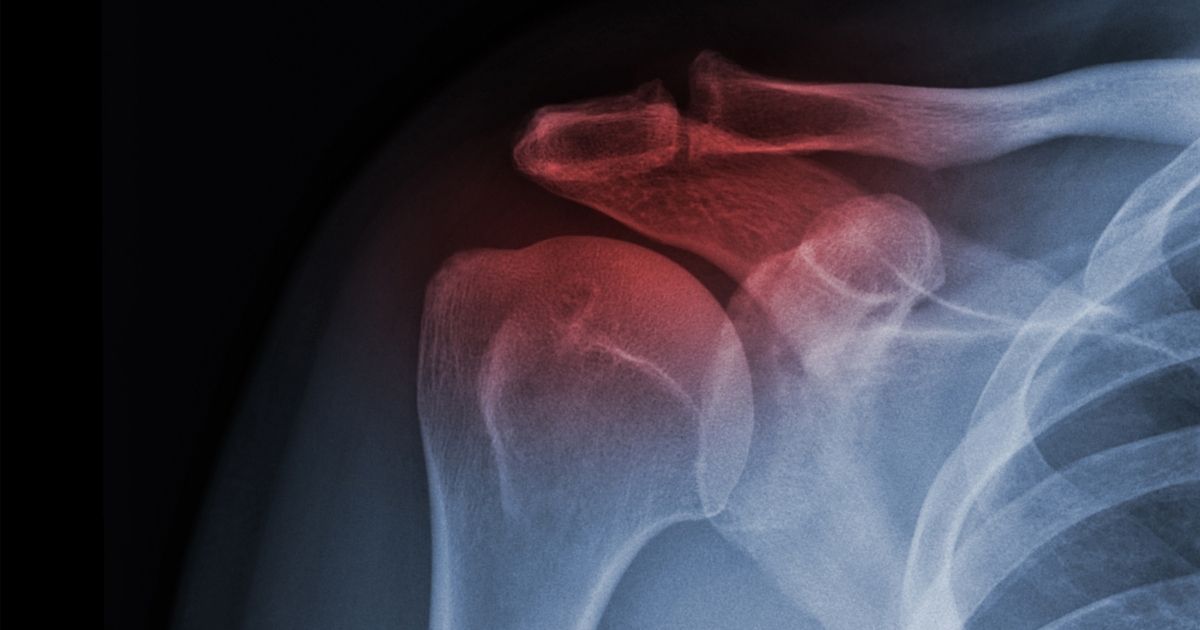The injuries that car accident victims deal with after their incident can make life difficult—especially if the accident affects a vital part of your body’s movement pattern, like with a shoulder injury. Unfortunately, because the shoulder contains many joints and moving parts, it is all too easy to injure it in a collision.
What Types of Shoulder Injuries Happen Most Often in Car Accidents?
Many of our car accident clients here at McCann Dillon Jaffe & Lamb, LLC deal with some variation of the following shoulder injuries:
- Rotator Cuff Tears: The “rotator cuff,” a group of muscles and tendons that keep your shoulder stable and help you move your arm, can easily tear if you brace yourself against the steering wheel or dashboard during a collision. If you have a rotator cuff tear, you will likely notice sharp pain, weakness, and trouble lifting your arm.
- Shoulder Strains and Sprains: You have “strained” your muscle if you overstretched or tore a muscle or tendon—a “sprain,” meanwhile, means you hurt a ligament. Both can happen in a crash, and both leave you with pain, swelling, and impaired movement.
- Shoulder Fractures: The bones in your shoulder can break under heavy impact. If you sustain one of these breaks, usually referred to as a “fracture,” you may experience severe pain, swelling, bruising, and sometimes a bump or odd angle in your shoulder.
How Can a Car Crash Cause a Dislocated Shoulder?
In some cases, the powerful impact of a car crash can push your arm bone out of its socket, resulting in a “dislocated” shoulder. It is every bit as painful as it sounds: You might not be able to move your arm at all, and you often need professional medical assistance to put your shoulder back in place.
What Is a Separated Shoulder and How Does It Happen?
If your shoulder hits something hard—like the door, dashboard, or window—the ligaments that connect your collarbone to your shoulder blade can stretch or tear. Doctors call this a “separated” shoulder, and it may result in a bump on top of your shoulder with accompanying pain, swelling, and weakness.
Can Whiplash Cause Shoulder Pain Too?
Most people think of neck pain when they hear “whiplash,” but this injury can also affect your shoulders. The sudden back-and-forth motion of a crash can strain the muscles and ligaments that connect your neck and shoulders, leading to pain and stiffness.
Why Can Deep Tissue Bruising Be a Big Deal?
It is easy to brush off a bruise as superficial, but “deep tissue bruising” in your shoulder can cause a great deal of pain and take a long time to heal. Deep bruises can make everyday activities—like getting dressed or reaching for something—much harder than you would expect.
What Should You Watch for After a Car Accident?
Some shoulder injuries do not exhibit serious symptoms right away—sometimes, even slight pain and swelling take hours or days to show. Here are some signs to look out for:
- Pain in your shoulder, upper back, or arm
- Swelling or stiffness
- Trouble moving your shoulder or arm
- Bruising or weird coloring
- Weakness or a “dead arm” feeling
- Numbness or tingling
- A bump or bulge near your collarbone
If you notice any of these symptoms after an accident, get checked out by a doctor immediately.
Find Legal Support for Shoulder Injuries with the Dover Car Accident Lawyers at McCann Dillon Jaffe & Lamb, LLC
If someone else caused an accident that caused your shoulder injury, turn to the compassionate Dover car accident lawyers at McCann Dillon Jaffe & Lamb, LLC. We will help you understand your options and pursue the compensation you need for medical bills, lost wages, and pain and suffering. For a free consultation, call today at 302-888-1221 or contact us online. Located in Wilmington, Delaware, we proudly serve clients in Wilmington, Dover, Newark, and Middletown, Delaware.


